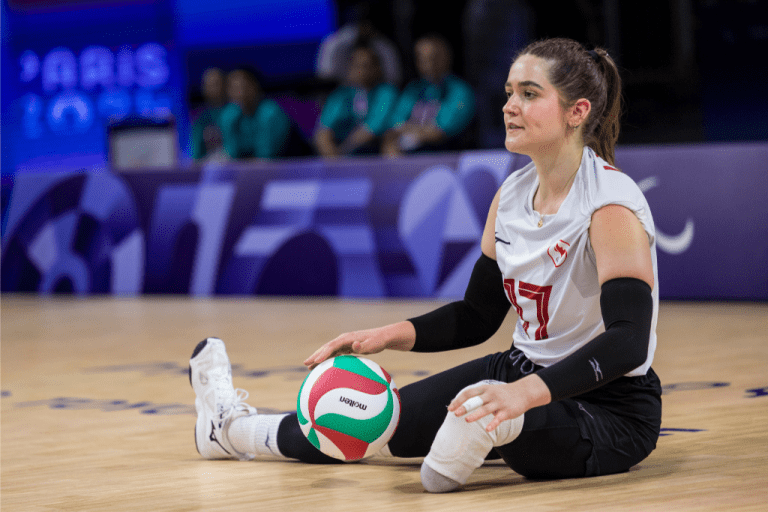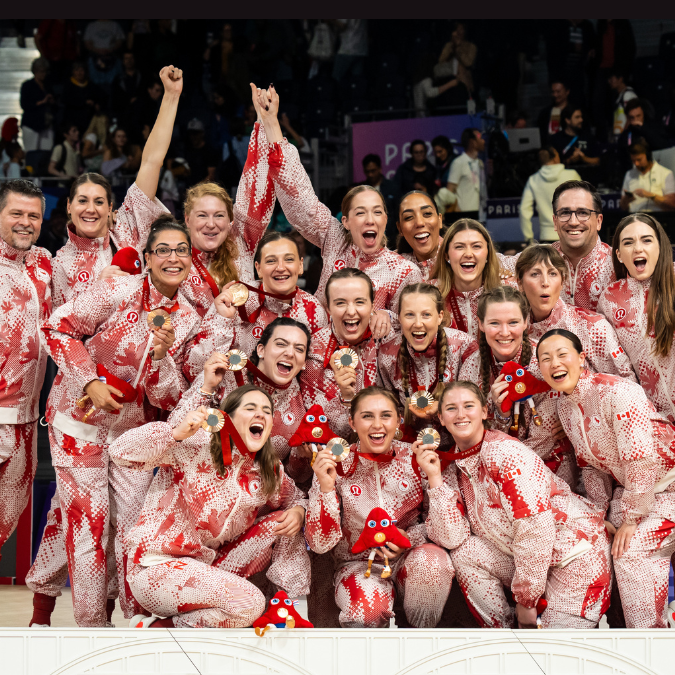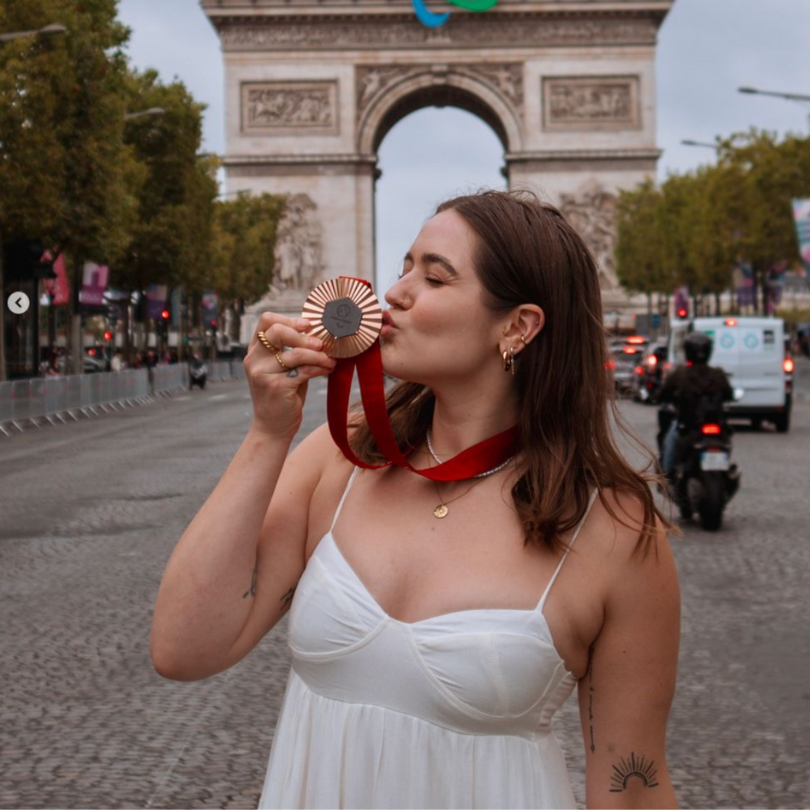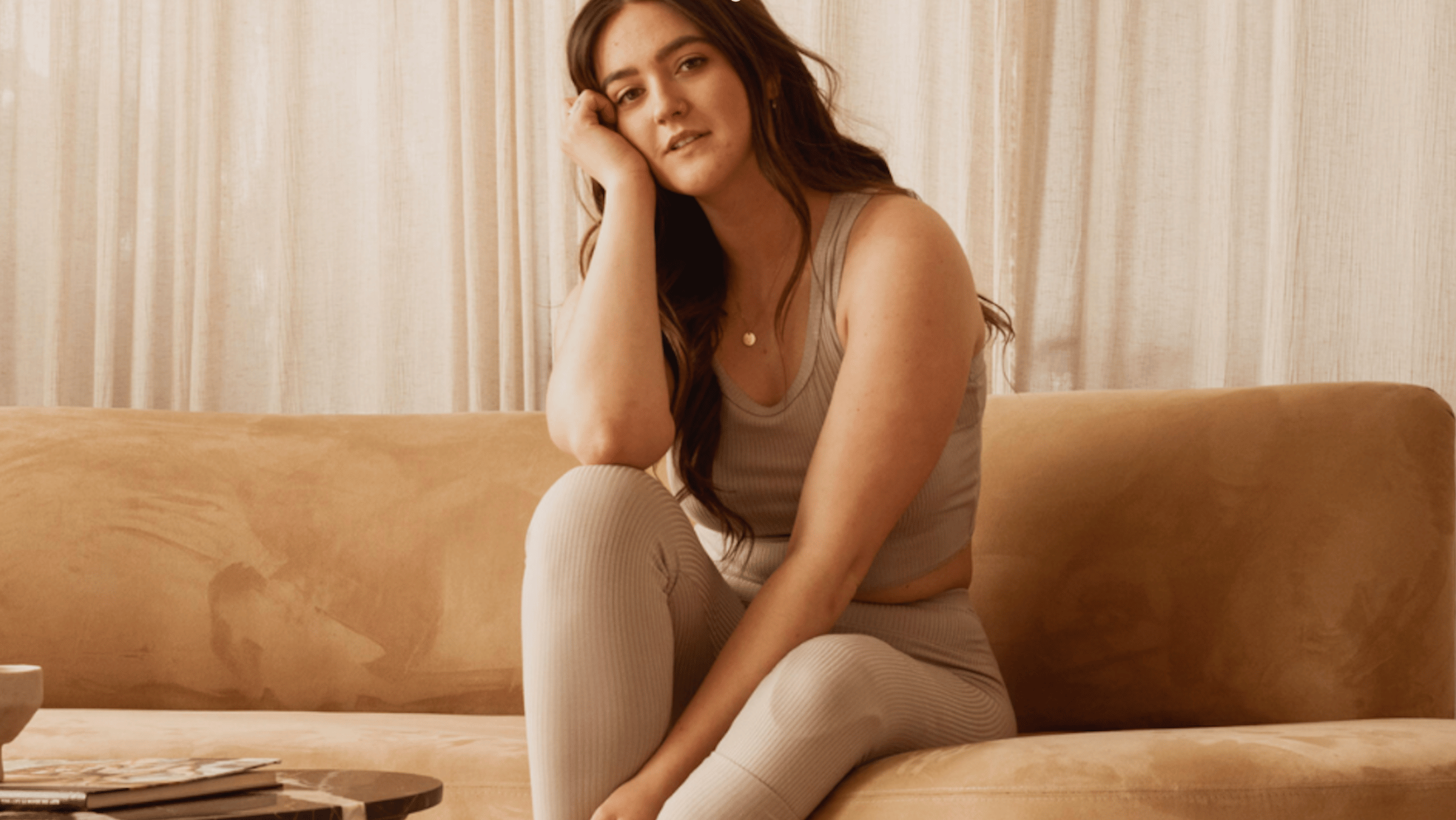In a world where representation matters more than ever, Paralympian Allison Lang is breaking barriers and amplifying voices. With a fierce determination that resonates both on and off the court, Lang and her teammates made history by clinching the bronze medal at the 2024 Paris Paralympic Games, showcasing the strength and skill of athletes with disabilities. But her impact goes far beyond the podium. As a dynamic advocate for body and disability positivity, Lang leverages the power of TikTok to share her journey and inspire countless others. Through engaging videos, she challenges stereotypes, celebrates individuality, and fosters a community where everyone can be seen and heard.
What have you been up to this summer post-Paralympics and in 2024?
Allison: This past year has been a whirlwind in the best possible way. I’m still coming down from this high that I was on. Being at the games this year is something my team and I have been working incredibly hard for, not just the past year but the past three or four years since Tokyo. It feels so surreal to me because I struggled so much with my disability identity growing up. And then to have adaptive sport come into my life and save me in a sense and give me something to look forward to and become an elite athlete, which I didn’t know was possible for such a long time to now repping the maple leaf and becoming a first time Paralympian this summer. There’s been a lot of incredible things that I’ve checked off of my list, and I don’t know, I guess I am healing a little part of my inner child as I move through all of this. And yeah, becoming a first-time Paralympian, making history with my team. We got the very first medal brought home to Canada in our sport of sitting volleyball, and we are the first summer team sport to win a medal since London 2012.
As you know, there are so many athletes, especially female athletes like Simone Biles and Olympians, coming out and being like, ‘Hey, we are people too’. How did you get the confidence to start this social media journey?
Allison: I think my social media journey, I have to preface with the fact that I was born missing the lower half of my left leg at birth unexpectedly. I was raised like any other child, I was thrown into soccer, swimming, and skiing, and I loved all of those sports. And then, I was severely bullied when I was a child. I didn’t want to be alive. I ended up hiding my disability. I was insecure, and it affected my self-worth. I ended up dropping out of sports around the age of 13 because I didn’t want people to see me as less than or discover my disability and share it with kids in school. When I turned 18, I started travelling. I got the travel bug, and when you’re lying on a beach in a bikini, it’s really hard to hide a prosthetic leg. I thought I used to master it. I’d stand to the side and cover my prosthetic. And then it kind of dawned on me one day in my early twenties where I’m like, who am I living this life for? I’m not living authentically as myself, having to perfect the way that my images look and hiding my disability only gave me this obsessive intuition.
I created a hashtag called #HopAroundtheWorldwithMe, a pun because I have one leg, and I’m hopping around the world and travelling. If I’m going to go all out, I have to do this now. I remember I posted my very first photo showing my prosthetic leg, and I know the algorithm has changed so much since 2012, but somehow mothers of disabled children started finding my account, and I would get these private messages thanking me for showcasing that their young daughter that was born with a disability could lead and end up living a fulfilling life, just like me travelling the world regardless of my disability and then turned into me competing and representing my country and getting these messages is what I guess shifted that narrative for me. I never had role models growing up, nobody with disabilities. That is what took the front seat of what I do now with my advocacy online. I wanted to bring awareness to the Paralympic games this year on TikTok with the huge Paralympic movement that’s been happening. So that’s been my goal.


I know you referenced you didn’t have a lot of role models because there was not a lot of representation for Paralympians and women’s sports in general. Who inspires you, and who pushes you to get out of those kinds of mindsets?
Allison Lang: What started that, and I mean, I have my team to thank, I was invited to come try sitting volleyball for the very first time when I was around 16 years old. That was at the peak of my body dysmorphia and my insecurities. As I said, I had never seen anyone with a disability living freely and as themselves and aspiring to do anything that they possibly could. I mean, I was invited when it was in its grassroots era. Sitting volleyball was still a brand new sport in Canada at this time. I remember walking into this room filled with women, and I mean, the men’s team was there, but at first, they didn’t matter to me. I walked in, and I saw beautiful women who had families, children, partners, and amazing jobs.
I think that’s what shifted my mentality after just my body and this sport; I move quite differently. I take my prosthetic leg off to play this sport, which I used to be so insecure about doing in front of other people, including my friends. When I would go to sleepovers, I wouldn’t take it off until everyone fell asleep. I didn’t want to make anyone uncomfortable, but then it made me physically uncomfortable. So, once I met these women, I decided that it was time to start doing work on myself. It didn’t happen overnight. I am still working on actively working on overcoming my insecurities. They don’t just go away. They do pop up here and there. Then, of course, I went to therapy, and I am so grateful that Team Canada has a program now that they have a lot of mental health resources for athletes.
What would you say to someone who is in sport, maybe who does have a disability or has body dysmorphic disorder and is struggling with being an athlete or looking in the mirror every day and being like, ‘I’m okay with myself’?
Allison Lang: Yeah, that’s such a touchy question because I think of my younger self specifically when asked that question and what I would’ve needed at that time. I think it’s just to know that I’m supported. It is hard, and it is a privilege. I know I had great parents who raised me with a disability and that not everybody has that, but to find a community that you can lean on specifically that has a similar story or goes through similar things. For the majority of my life, until I met my team, I felt alone. I know growing up, when we were younger, I was always told not to talk to strangers online. It’s dangerous. But I think one of the more beautiful things is even when you do feel alone, I found a community online that I’ve built of great other advocates with disabilities, and just trying to surround myself with other people who are continuously working on themselves. I unfollowed accounts online that made me feel less than or comparative. Now that I follow a range of disability advocates with more than just my disability, a range of disabilities, it’s expanding my learning.
For more on Allison Lang’s journey head to her website https://www.allisonelang.com/, or follow her on TikTok and Instagram @allisonelang.















